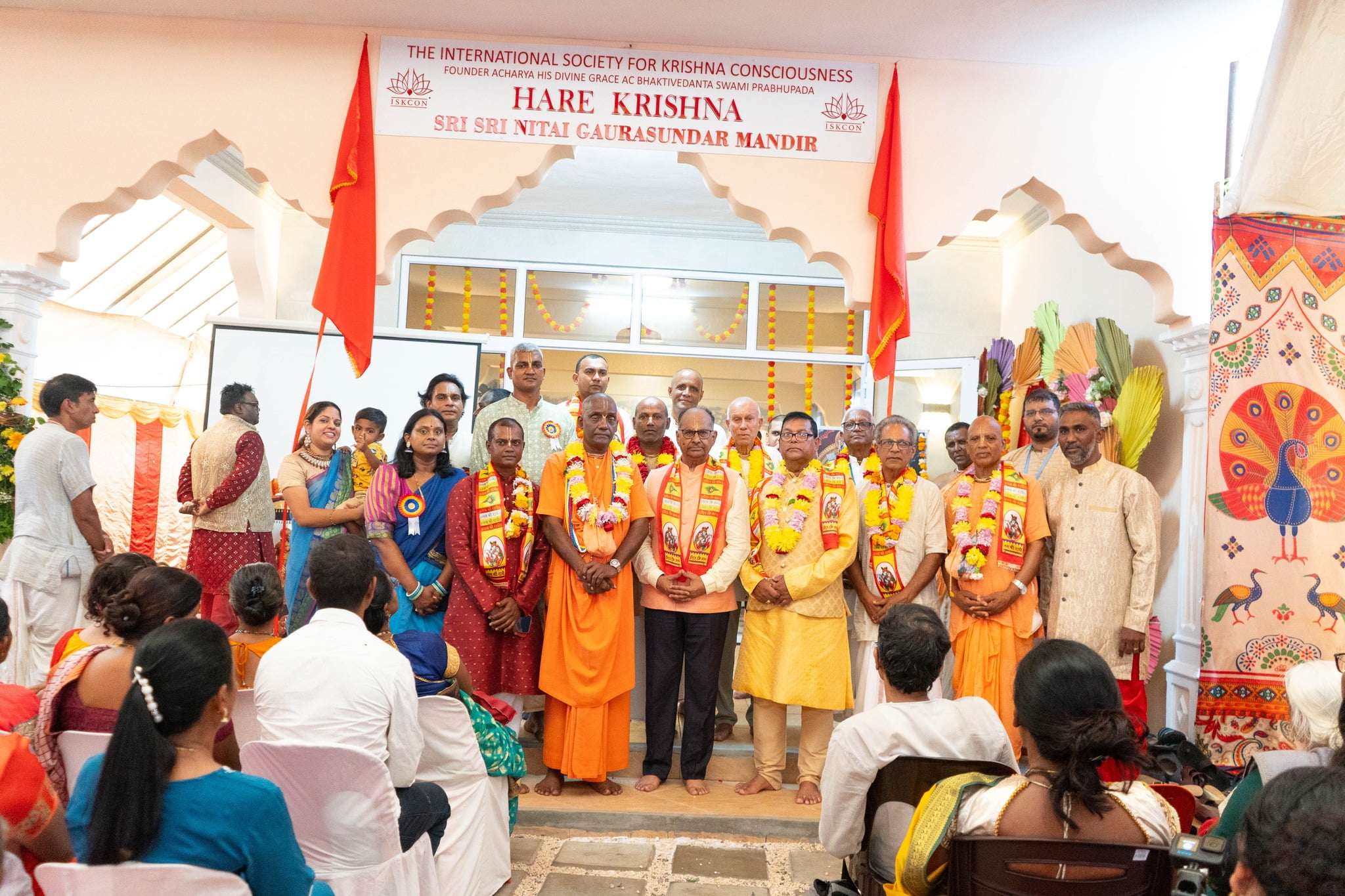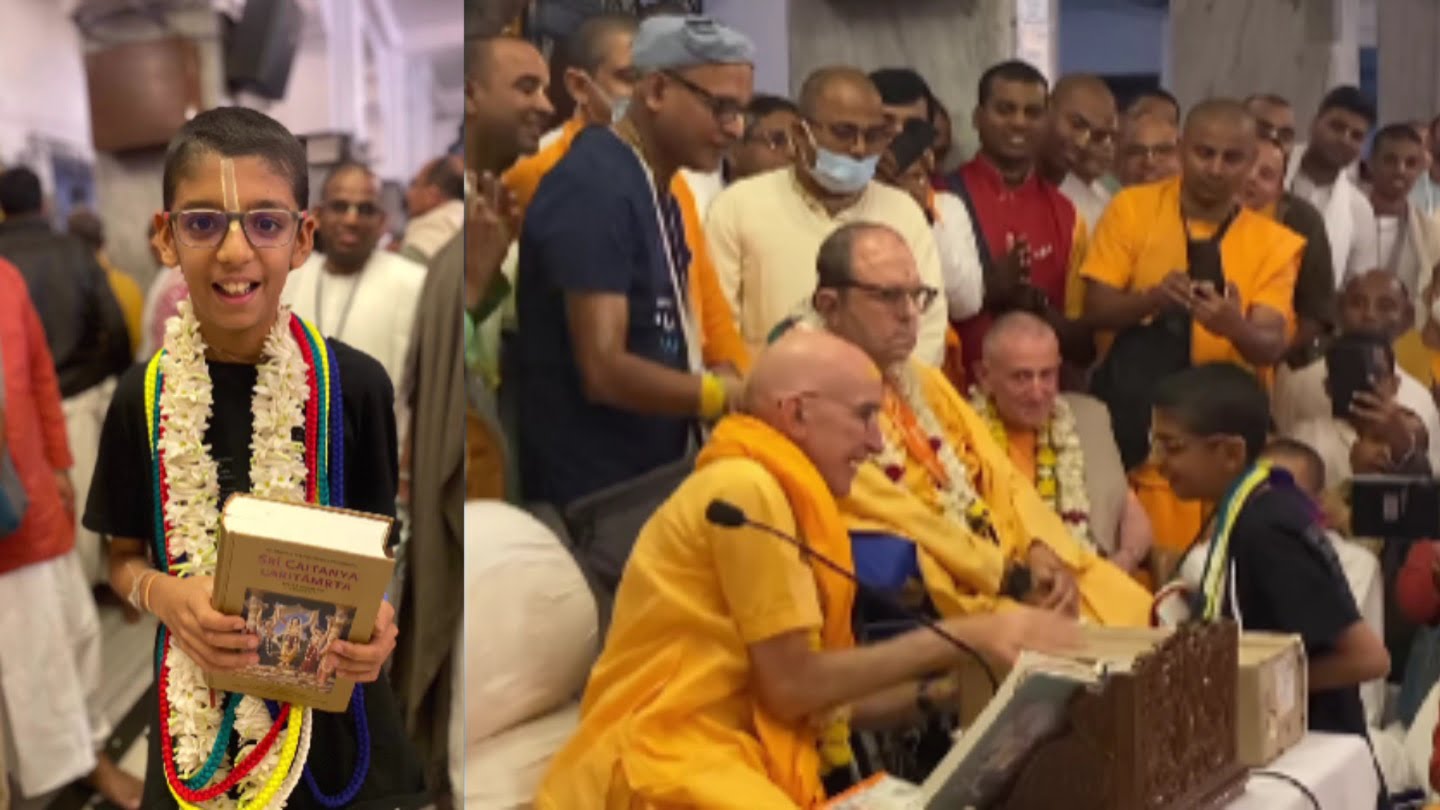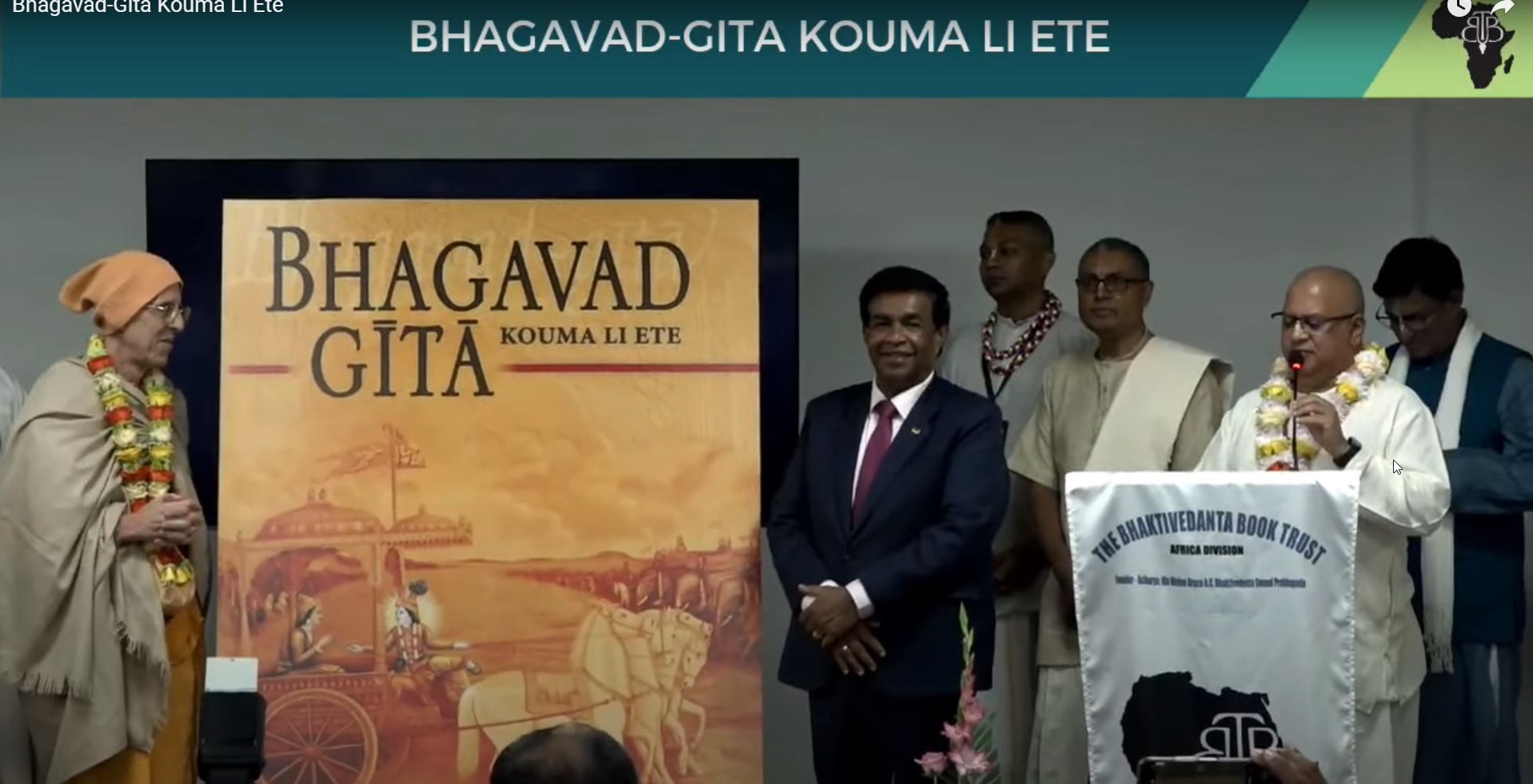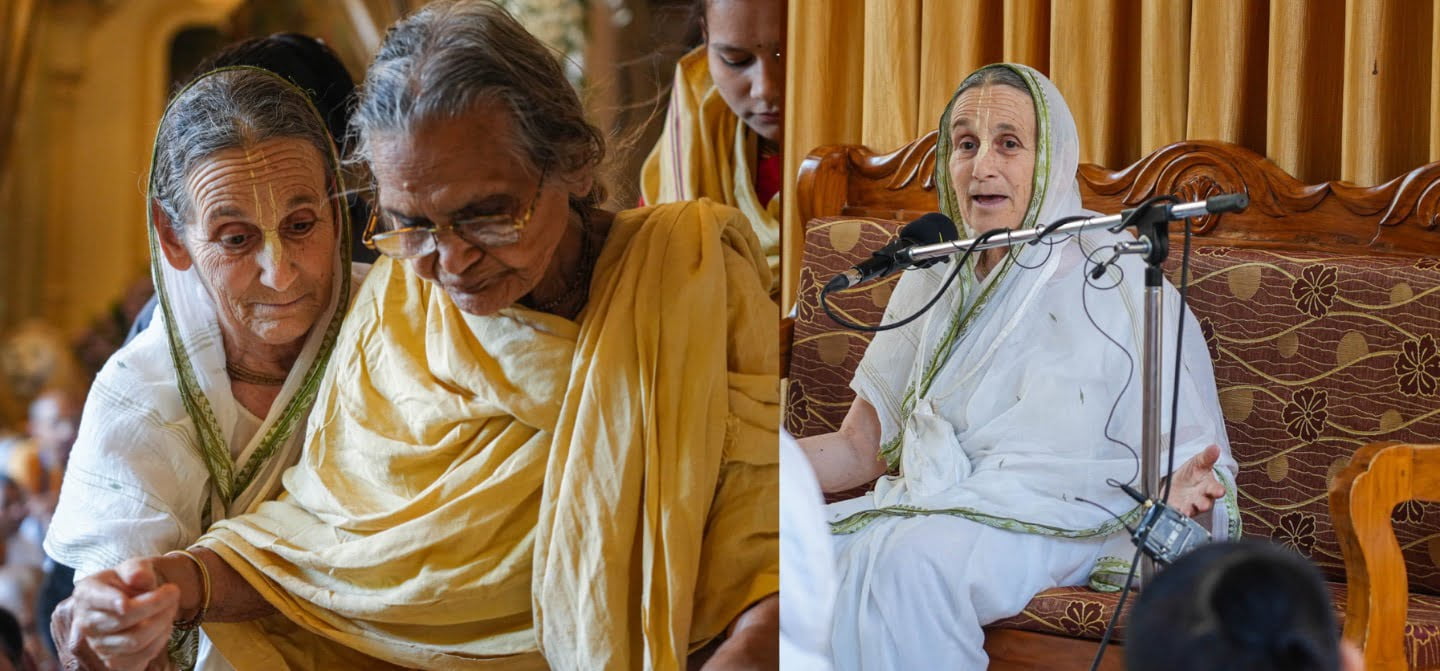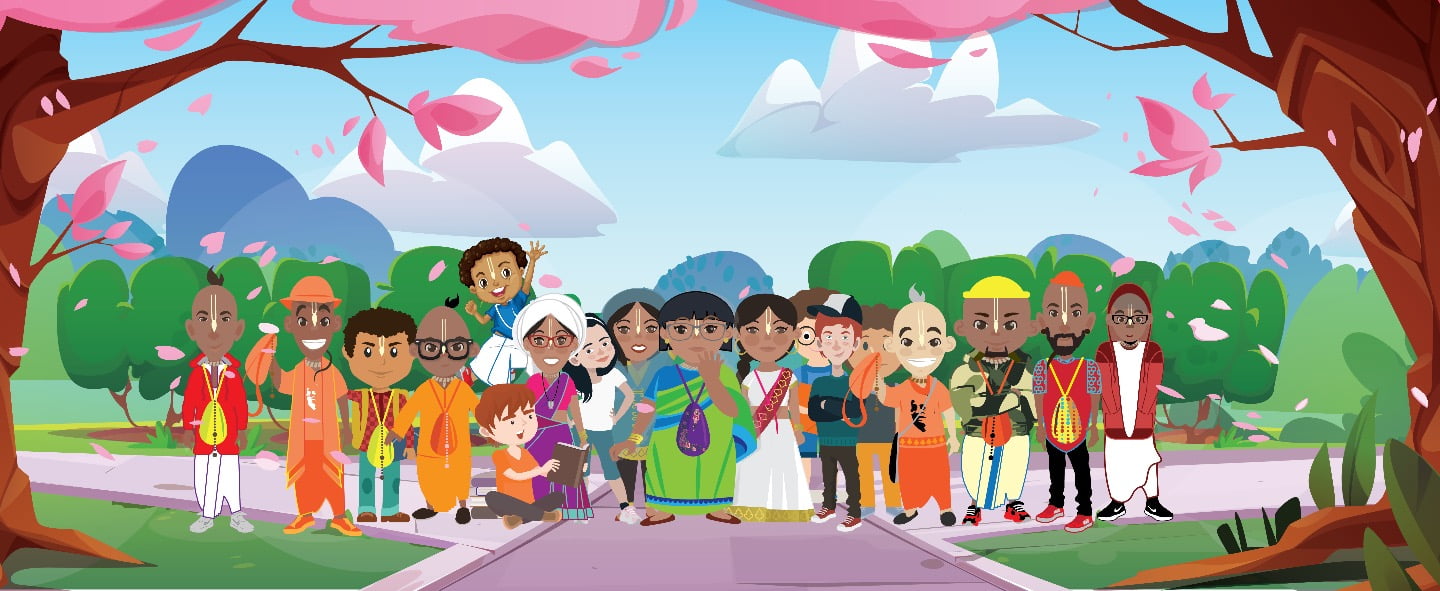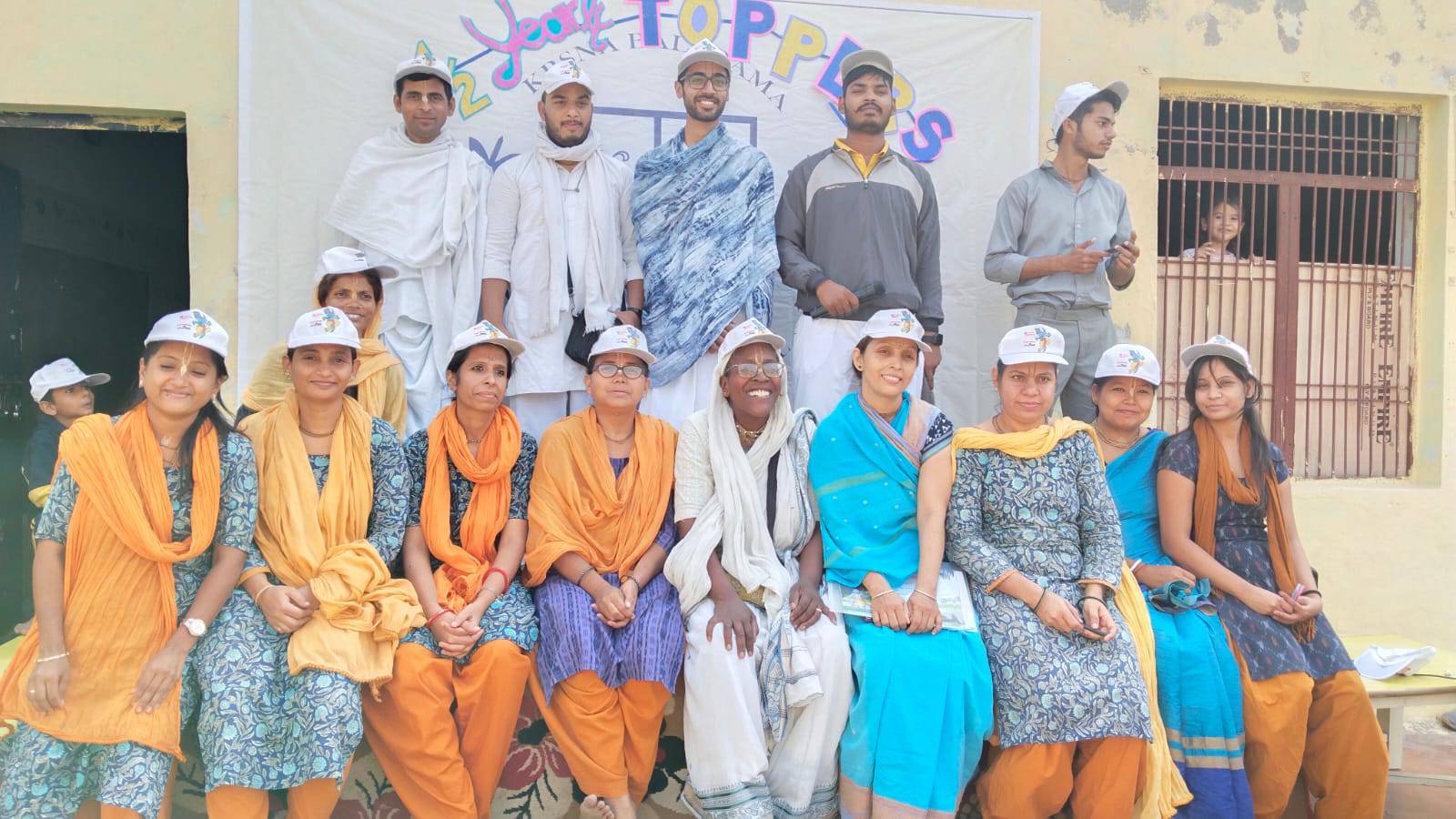Narada Das Explains “We Are Not the Body” to 135,000 BBC Radio Bristol Listeners
By Madhava Smullen | Feb 21, 2020

Narada Das (Nathan Hartley) appeared on the BBC’s regional Bristol radio station to share a spiritual message of equality with 135,000 listeners on February 20th, quoting the Bhagavad-gita and Srila Prabhupada.
Narada has a background in community engagement and local government, has worked in marketing and communications for the past decade, and is part of the Bath Interfaith Group. He also handles PR and promotions for the UK Hare Krishna Festival Team, and sits on ISKCON UK’s National Council.
Since the beginning of the year, Narada has had a monthly slot on Thought for the Day, a three-minute segment during Radio Bristol’s popular Breakfast Show featuring “reflections from a faith perspective on issues and people in the news.”
With the UK’s newly elected government looking to tighten up on immigration, and the issue being hotly debated, the radio station asked Narada to talk about the topic of nationality from a spiritual perspective.

Narada Das arrives at the BBC Radio Bristol studios
After host Emma Britton welcomed Narada as “Nathan Hartley, Hare Krishna devotee,” he began with a quote:
“We are not the body, we are eternal spiritual beings.”
He explained, “Those were the words of Srila Prabhupada, a spiritual teacher who came from India to the West in the 1960s.
Despite saying them over fifty years ago, it’s a concept that many of us still find difficult to identify with.
Prabhupada, the founder of the Hare Krishna Movement, wanted to share with the world these ancient teachings that actually there is more to life than our physical bodies.
Our bodies, and all the labels that go with them – gender, race, religion, sexuality and nationality – don’t sum up who we really are.
Prabhupada based his teachings on the text known as the Bhagavad Gita, written 5,000 years ago. It says ‘the humble sages, by virtue of true knowledge, see with equal vision a learned and gentle brahmana, a cow, an elephant, a dog and a dog eater.’
In other words, internally and eternally we are all the same. Regardless of which nation we live in, or the color of our skin – the essence of us all is identical!

Entrance to the BBC Radio Bristol studios
So, what’s the lesson for us today? Love and respect all – a simple universal principle that when applied, makes the world a much better place.”
Narada’s message on Thought for the Day this Thursday follows his first appearance in January, which was also the first Thought for the Day slot of the year.
Speaking about New Year’s resolutions, Narada discussed what we could do differently in the year 2020, and encouraged listeners to take up yoga or meditation. Quoting the Bhagavad-gita, he emphasized the need to focus on permanent solutions to the problems in our lives, rather than on temporary happiness.
Another devotee, kirtaniya Jahnavi Harrison, has appeared regularly for years on a similar slot, BBC Radio 2’s Pause for Thought during the Zoe Ball Breakfast show, which goes out to a national audience.
Jahnavi has talked about doing our duty, humility, the enlightening power of song, strength and courage, among many topics. Her most recent appearance was on February 4th, when the theme was ‘tolerating the bad times.’
Talking about getting through the grey skies, colds and flu of February, she quoted the Bhagavad-gita 2.14: “The nonpermanent appearance of happiness and distress, and their disappearance in due course, are like the appearance and disappearance of winter and summer seasons. They arise from sense perception, O scion of Bharata, and one must learn to tolerate them without being disturbed.”

Jahnavi Harrison appears on BBC Radio 2’s Pause for Thought
Jahnavi then commented, “The Bhagavad-gita says that this life is full of sukha – happiness, and dukha – distress. There are as many Februaries as there are Junes, and no one can argue that tolerating day after day of grey skies, or worse, an illness or a period of unemployment, is very hard. But I’ve always found that meditating on this verse helps me through things I thought I’d never be able to bear.”
Meanwhile, Narada Das will continue appearing on BBC Radio Bristol’s Thought for the Day once a month, with his next slot coming up on April 13th, Easter Monday.
Commenting on the opportunity, he says:
“I think it’s great. We’re promoting Krishna consciousness, and 135,000 people are hearing the phrase Hare Krishna through the airwaves. I mentioned the Bhagavad-gita, so people may go and look for it now. I think that’s a very positive thing. Also, we’re representing modern Britain – which is very different from where it was forty years ago – and showing people that there’s a variety of religious traditions and backgrounds now.”
To listen to Narada’s Thought for the Day slot, click here and skip to 2 hrs 13 mins in:



